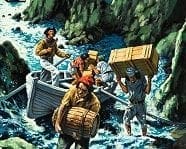
This task is provisional and adopts a different approach to the assessment task on the site you might have tried before. We would be interested in your feedback and will happily provide a markscheme on request. We hope you enjoy using it.

This task is provisional and adopts a different approach to the assessment task on the site you might have tried before. We would be interested in your feedback and will happily provide a markscheme on request. We hope you enjoy using it.